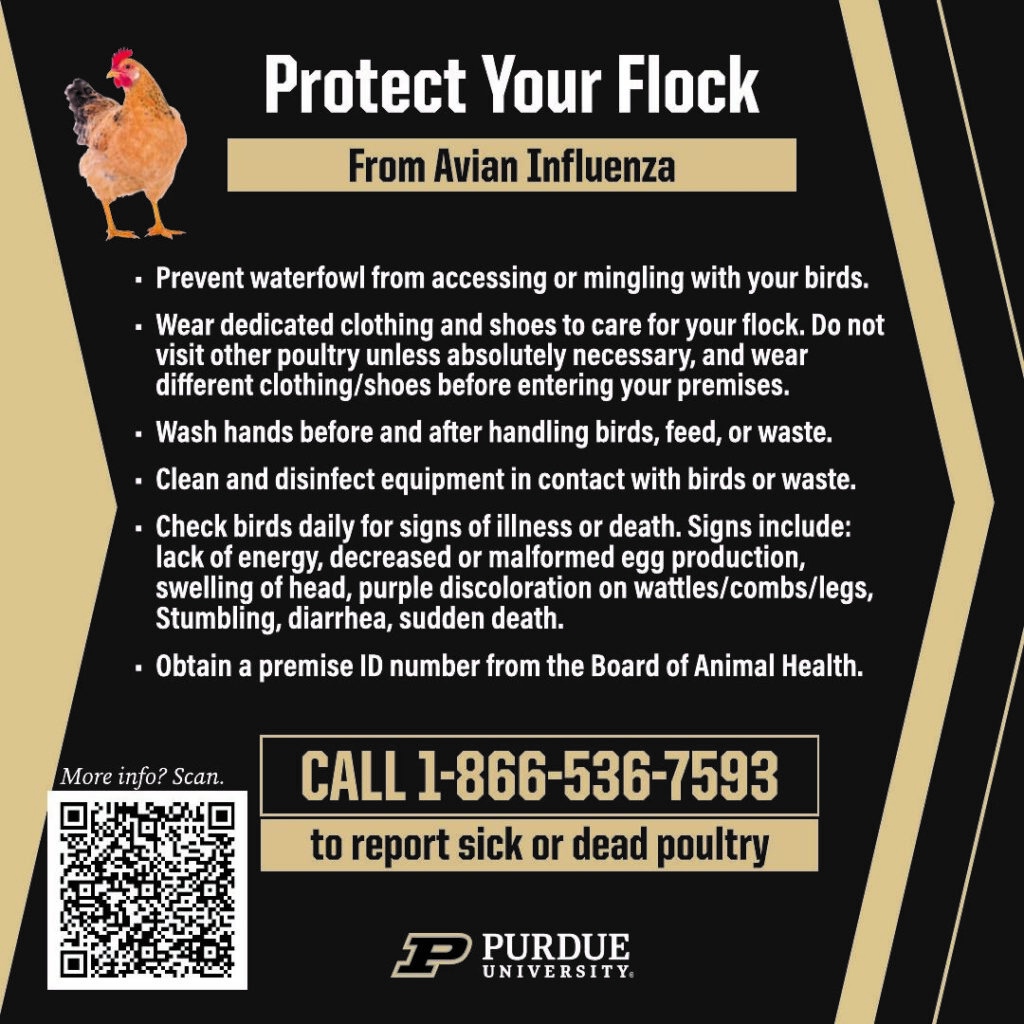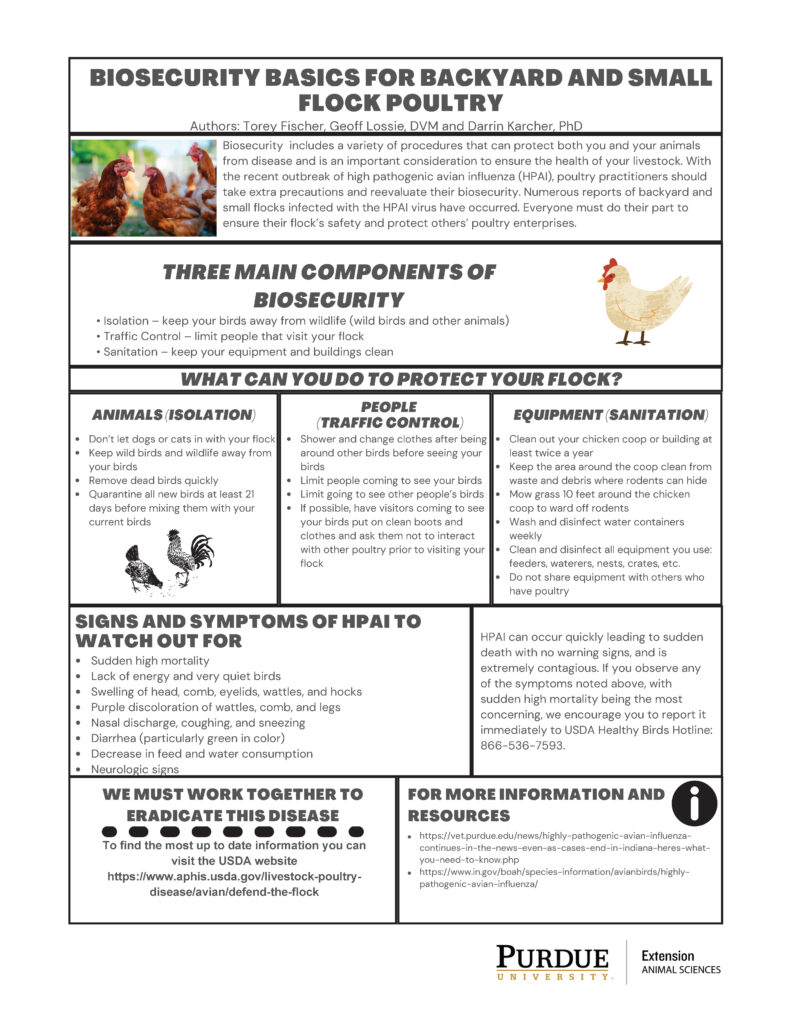Hello Morgan County!
Highly Pathogenic Avian Influenza Virus (H5N1) has been found in several Indiana counties. The U.S. Department of Agriculture’s Animal and Plant Health Inspection Service (USDA APHIS) has provided important information and measures that all poultry producers should follow to prevent the introduction and spread of HPAI.
What is HPAI?
HPAI is a highly infectious and fatal form of avian influenza that can strike poultry without warning. Although most avian influenza viruses are classified as low pathogenic (LPAI) and cause mild or no symptoms, some LPAI strains can mutate into HPAI viruses. Wild migratory waterfowl are considered the natural reservoir for these viruses.
Clinical Signs of HPAI in Poultry
HPAI can cause sudden death in birds without warning. Other clinical signs include:
- Lack of energy and appetite
- Decreased egg production, including soft-shelled or misshapen eggs
- Swelling of the head, eyelids, comb, wattles, and hocks
- Purple discoloration of combs, wattles, and legs
- Nasal discharge, coughing, or sneezing
- Incoordination and diarrhea
If you notice any of these signs in your flock, immediately contact the USDA APHIS at 1-866-536-7593 for assistance and further steps. Visit https://www.aphis.usda.gov/livestock-poultry-disease/avian/defend-the-flock/resources for more information.
Biosecurity Measures to Protect Your Flock
To minimize the risk of HPAI, we urge you to adopt these critical biosecurity practices:
- Limit Exposure to Wild Birds
Prevent your poultry from coming into contact with wild or migratory birds, especially waterfowl. Avoid water sources that may be contaminated. - Control Access to Your Farm
Permit only essential workers and vehicles on your farm. Clean and disinfect all equipment and vehicles entering or leaving your premises, including tires and undercarriages. - Practice All-In, All-Out Management
Adhere to a strict “all-in, all-out” philosophy to reduce the risk of cross-contamination between different flocks. - Limit Equipment Sharing
Avoid lending or borrowing equipment from other farms. If visiting other poultry operations, change clothing and footwear before working with your own flock. - Maintain Clean Facilities
Keep your barn, equipment, and vehicles clean and disinfected. This is especially important for vehicles used to transport birds. - At Live-Bird Markets
Follow heightened biosecurity measures in live-bird markets, including using plastic crates for easier cleaning, disinfecting all equipment, and keeping incoming poultry separate from unsold birds. - Report Suspicious Illnesses
If you suspect any signs of HPAI in your birds, do not hesitate to call the USDA Veterinary Services office at 1-866-536-7593 for immediate advice and support.
Register Your Premises
We also encourage you to register your farm with the Premises Identification Program. Registering for a premises ID is an important step for traceability, ensuring that in the event of a disease outbreak, authorities can quickly locate and manage affected farms. This is an essential biosecurity measure to help control the spread of HPAI and other diseases.
For more information on how to register for a Premises ID, please visit the following website: Premises ID Registration.
Disease Prevention Strategies
The USDA and state veterinarians conduct regular surveillance and investigations to identify potential outbreaks and prevent the spread of HPAI. These efforts include quarantine measures, disease control protocols, and collaboration with the poultry industry to enhance monitoring at breeding flocks, live-bird markets, and slaughter plants.
Situation updates and status reports about ongoing avian influenza activities, along with critical disease-related information, will be posted online at: https://www.in.gov/boah/species-information/avianbirds/highly-pathogenic-avian-influenza/. Users may subscribe to email and/or text updates on a subscribe link at that page. Thank you for your continued dedication to the health and safety of your poultry. By taking these steps and staying vigilant, we can all work together to protect our flocks from the threat of HPAI. If you have any questions or concerns, please do not hesitate to reach out.


